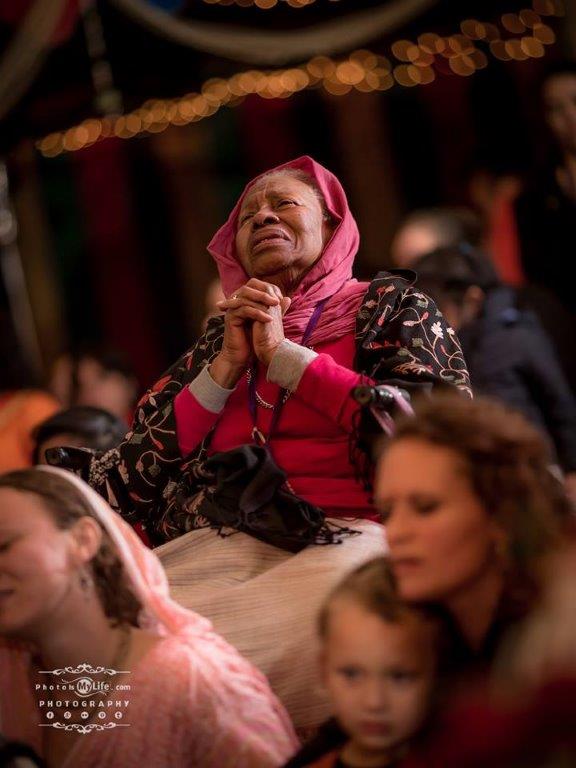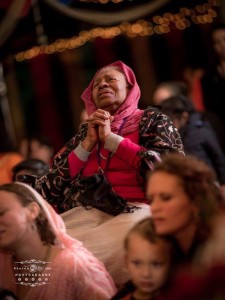by Hari Parayana dasa
The following was published in issue 472 of the Sri Krishna Kathamrita Bindu on 19 April 2020.
The Bhagavad-gita verse 9. 32 says
mam hi partha vyapasritya
ye ‘pi syah papa-yonayah
striyo vaisyas tatha sudhras
te ‘pi yanti param gatim
In the translation, women, vaishyas, and sudras are stated to be of lower birth. But this isn’t the way it has been translated by Srila Prabhupada in all places, nor by our acaryas.
This verse is translated in various ways at different times by different ācāryas. In his chapter nine translation to Bhagavad-gītā As It Is, Srila Prabhupada writes: O son of Pritha, those who take shelter in me, though they be of lower birth — women, vaiśyas [merchants] and śūdras [workers] — can attain the supreme destination. However, in his introduction to the same book, Srila Prabhupada translates this verse slightly differently, giving a different meaning to the word striya: … the Lord says that even a merchant, a fallen woman, or a labourer, or even human beings in the lowest status of life, can attain the Supreme.
Srila Prabhupada quotes this verse many times in his writings and at different times he gives these two different translations. For example, in his purports to Bhāg. 4.30.41, and Bhāg. 5.26.23 he uses Bhagavad-gītā 9.32 to describe birth a woman‘s birth as lower.
However, in his purport to Bhāg. 2.9.36 he translates striya as, “the fallen woman”, which is the same translation he gives in his introduction to the Gītā. Again, in his purport to Bhāg. 4.21.33, he translates the word as “a degraded woman”.
In his Bengali versification of Bhagavad-gītā, Gītāra-gāna, Srila Prabhupada used a different kind of synonym for striya:
āmāke āśraya kari yebā pāpa-yoni
mlecchādi yavana kimvā veśyā madhye gaṇi
kimbā vaiśya śūdra yadi āmāra āśraya
pāibe vaikuṇṭha gati jāniha niścaya
All those who are sinful by birth viz. mlecchas, yavanas, prostitutes, vaiśyas (merchants) and śūdras — if they take my shelter then know for sure that they all attain vaikuṇṭha as their destination. (Gītāra-gāna, 9.32)
Thus, Srila Prabhupada has presented the same verse in two strikingly different ways.
It is interesting to see how some of our previous ācāryas have explained this verse:
Srila Sanatan Goswami has not commented upon the entire Bhagavad-gītā, but he has commented upon this specific verse, as he quotes it in Hari-bhakti-vilāsa (10.179). In his commentary to the verse he puts women and śūdras in a separate category and says that they are unfortunate due to not having any access to the study of the Vedas, etc. According to him, the vaiśyas (merchants) are unfortunate because they are engaged only in mundane agricultural work, etc.
Srila Vishwanath Chakravarti Thakur considers all four categories to be independent of each other. For him, pāpa-yonayaḥ means the outcastes described in Śrīmad Bhāgavatam (2.4.18). The women, vaiśyas, and śūdras are grouped in a separate category and are considered unfortunate by him because they are alīkādimantaḥ — having faults such as lying. So he too doesn’t consider pāpa-yonayaḥ to be an adjective of the women, vaiśyas and śūdras. Regarding the vaiśyas, they too have to lie. The merchants have to lie in order to get things done. They can’t make a living by being brutally true all the time. This makes them unfortunate.
Srila Baladev Vidyabhushan considers all four terms to be independent. He interprets the term pāpayonayaḥ in an interesting way. He says, pāpa-yonayo ’ntyajāḥ sahaja-durācārāḥ — “Low born are those who are outside the caste system, naturally inclined to misdeeds.” He does not include women, śūdras and vaiśyas in this list because he uses the term antyaja, outcaste, and this term is never applied to a śūdra, vaiśya or a woman within the varṇāśrama system.
Srila Bhaktivinode Thakur, in his Rasika-rañjana commentary on Bhagavad-gītā, explains this verse as follows, “O Partha, if the outcastes such as mlecchas, fallen women such as prostitutes, and members of the lower varṇas, the vaiśyas and śūdras, take shelter of my unalloyed devotional service with determination, they too will quickly attain the supreme destination. There is no question of there being any impediment due to varṇa for those who traverse the path of devotional service to me.” Like Srila Prabhupada, the Thakur uses the word veśyā, prostitute, as the synonym for striya in the verse.



